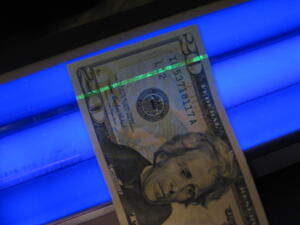 Black market websites, located in the “deep web” are known for supplying sophisticated criminals- typically hackers- with information that will allow them to compromise a person’s identity. Personal information is typically the main commodity on such sites although, it is common to see transactions for illegal drugs, credit card data, malware, and spyware and in some extreme cases, even contracts for murder have been bought and sold on the deep web. However, recently, The Business Insider has reported a new trend. A new concern has emerged with such transactions being openly advertised on websites that are on the “world wide web”. That means it is not located in some obscure TOR server where it takes a lot of effort to find, but can be found conducting a search on a standard search engine, like Google or Bing.
Black market websites, located in the “deep web” are known for supplying sophisticated criminals- typically hackers- with information that will allow them to compromise a person’s identity. Personal information is typically the main commodity on such sites although, it is common to see transactions for illegal drugs, credit card data, malware, and spyware and in some extreme cases, even contracts for murder have been bought and sold on the deep web. However, recently, The Business Insider has reported a new trend. A new concern has emerged with such transactions being openly advertised on websites that are on the “world wide web”. That means it is not located in some obscure TOR server where it takes a lot of effort to find, but can be found conducting a search on a standard search engine, like Google or Bing.
According to the US Secret Service this is the first significant case in which counterfeit currency has been reported to be openly sold on the internet. It marks a fairly significant change point, because it seems to indicate that- at least as far as the seller is concerned- the fear of being caught is not great. The anonymity afforded by the internet allows this individual to act with impunity.
Attributes of Internet Black Market Counterfeit Currency:
Mr. Mouse, the source responsible for the circulation and selling of these counterfeit bills, has been reported to be distributing denominations of $20, $50, and $100 dollar bills of counterfeit currency. He has advertised his products on forums like Reddit. In his advertisements, Mr. Mouse claims that his counterfeit bills are undetectable to currency verification methods such as water mark verification, the pen test and security strip verification. Although, his individual counterfeit currency notes, do not possess the magnetic ink that is used to print authentic US currency
What does this mean?
Identity theft is no longer the sole security vulnerability that one is susceptible to on Internet sites. The recent presence of counterfeit currency on the Internet now raises a new concern, namely, that widespread circulation of high quality counterfeit notes, promulgated by the ease of availability due to their sale on the internet, lead to greater incidences of counterfeiting.
Although Mr. Mouse claims that his counterfeit currency is able to bypass majority of the currency verification methods, there are security measures that can be administered to verify that the currency that you are handling in your business transactions is authentic US currency. There are resources available that are able to detect the magnetic ink that is present on authentic US currency. As proponents against fraud, FraudFighter has developed a number of machines, such as the FF1000 and the CT550, that are able to verify the magnetic and metallic ink that is present on an authentic US bill. If you are a business that handles cash transactions on a daily basis, it is important that you implement security measures that protect your business from these types of vulnerabilities. Currency verification measures should be implemented in conjunction that these measures adhere to regulatory compliances. We at FraudFighter, have developed counterfeit detection machines that not only help to detect counterfeit currency, but also adhere to regulatory compliances.
To learn about how FraudFighter’s counterfeit money detectors can benefit your company against the risk of handling counterfeit currency download our Counterfiet Detection Buyer's Guide.




Leave a Comment